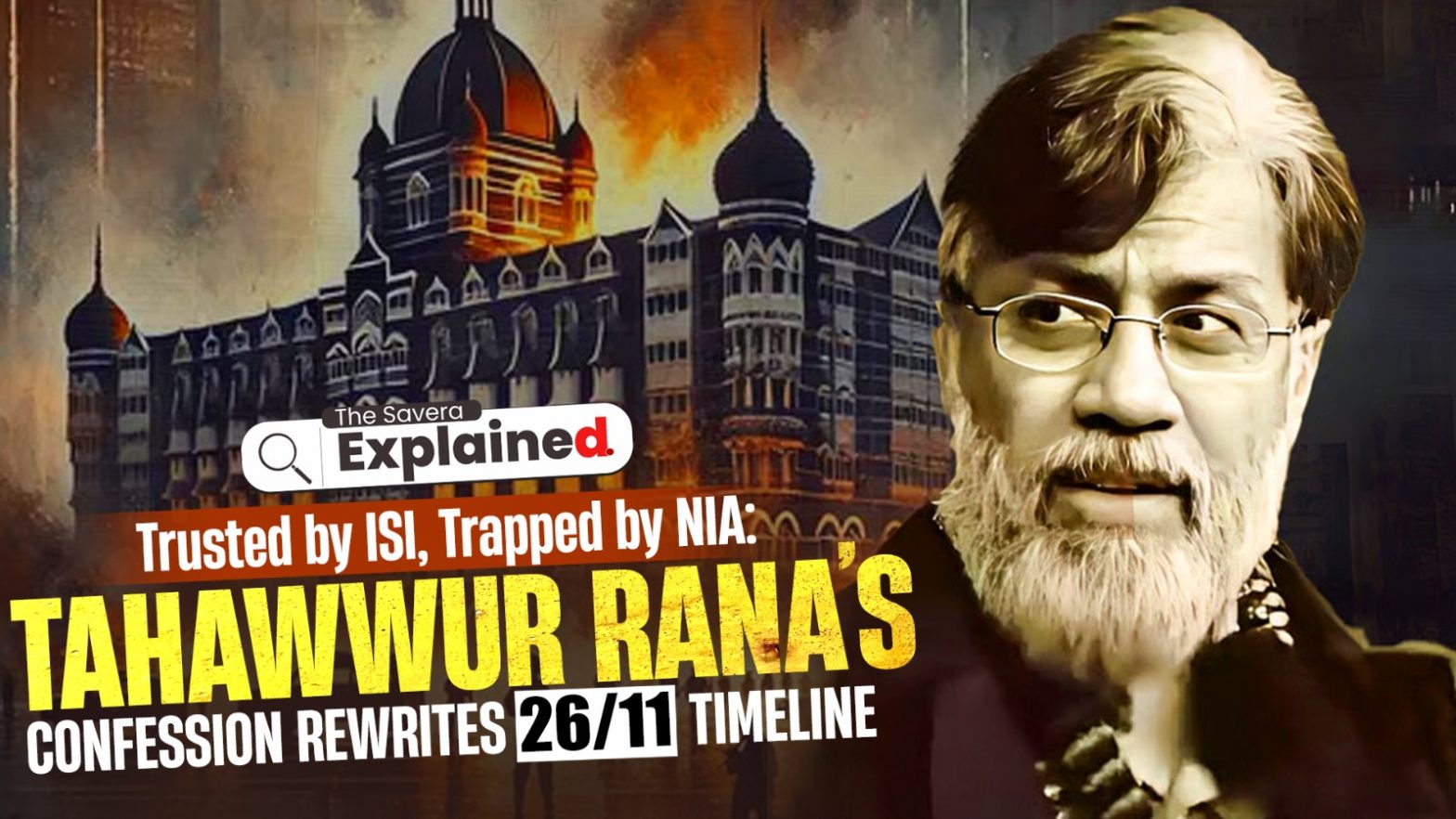
Tahawwur Hussain Rana, a 64-year-old Pakistan-born Canadian citizen and former captain in the Pakistan Army, has emerged as a central figure in the 2008 Mumbai terror attacks investigation. Now in the custody of India’s National Investigation Agency (NIA), Rana has reportedly made significant confessions that strengthen India’s long-standing claims of state-sponsored terrorism.
In a major breakthrough, Rana admitted to being a “trusted agent” of the Pakistan Army and its intelligence agency, the ISI (Inter-Services Intelligence). He confessed to conducting reconnaissance of key targets in Mumbai, including the Chhatrapati Shivaji Maharaj Terminus (CSMT), ahead of the attacks. Rana further revealed he was present in Mumbai during the attacks, staying at a hotel in Powai, and left for Beijing via Dubai just before the carnage began.
During his 18-day NIA custody, Rana disclosed that Lashkar-e-Taiba (LeT), the Pakistan-based terror outfit, operated as a covert spy network for the Pakistani state. He and his childhood friend David Coleman Headley attended several LeT training sessions together. These revelations align with Indian intelligence findings and provide critical insights into the planning and execution of the 26/11 attacks.
About the 26/11 Mumbai Attacks
On November 26, 2008, ten LeT terrorists from Pakistan arrived by sea from Karachi to launch a coordinated attack on Mumbai. Over 60 hours, they struck multiple iconic locations: the Taj Mahal Palace Hotel, Oberoi Trident Hotel, Leopold Café, Nariman House, and CSMT.
Armed with AK-47s, grenades, and explosives, the terrorists killed 166 people, including 20 security personnel and 26 foreigners—six of whom were American. Over 238 people were injured. The siege ended on November 29, 2008, after Indian forces, including the National Security Guard (NSG), neutralized nine attackers and captured one, Ajmal Kasab.
Key Accused in the 26/11 Attacks
David Coleman Headley: A Pakistani-American LeT operative who conducted reconnaissance. Arrested in the US in 2009, he pleaded guilty, testified against Rana, and is serving a 35-year sentence.
Hafiz Saeed: LeT founder and alleged mastermind, currently at large in Pakistan.
Zaki-ur-Rehman Lakhvi: Senior LeT commander and accused planner of the attacks, remains free in Pakistan.
Major Iqbal and Sajid Mir: Alleged ISI handlers who coordinated the attacks, remain unarrested.
Ajmal Kasab: The only terrorist captured alive, convicted, and executed in 2012.
Tahawwur Rana: Accused of aiding Headley and providing logistics and cover during reconnaissance.
Arrests and Legal Actions
Tahawwur Rana: Arrested by the FBI in 2009. After years of legal processes, he was extradited to India in April 2025 and is in NIA custody. He faces charges of criminal conspiracy, murder, terrorism, and waging war against India.
David Headley: Convicted in the US in 2013, serving a 35-year sentence.
Ajmal Kasab: Tried in India and executed in November 2012.
Other accused like Hafiz Saeed, Lakhvi, Major Iqbal, and Sajid Mir remain at large in Pakistan. While, India continues to seek their extradition.
Rana’s Role and Legal Journey
Rana’s Chicago-based immigration firm was used by Headley to open a Mumbai office in 2006, serving as a cover to scout targets. Rana allegedly provided financial and logistical support, aware of the office’s purpose.
In 2011, a US court convicted Rana for aiding LeT and plotting to attack a Danish newspaper, but cleared him of direct involvement in 26/11. He was sentenced to 14 years in 2013 and released in 2020 on health grounds.
India requested extradition, and after multiple legal proceedings, a US court approved it in 2023. The US Supreme Court later rejected Rana’s appeals. His extradition was finalized in February 2025 following a meeting between President Donald Trump and Prime Minister Narendra Modi.
